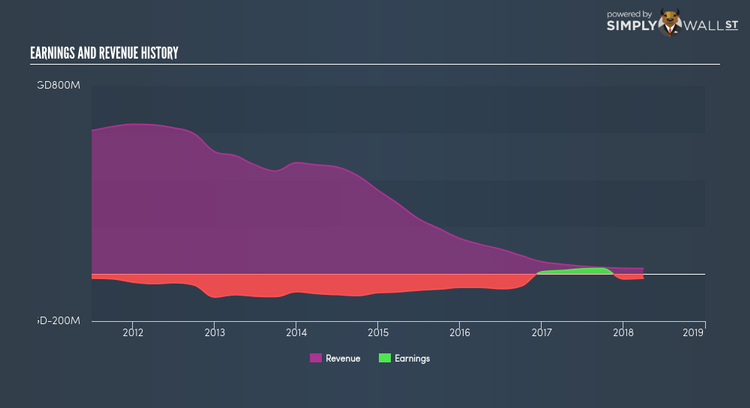What You Must Know About Huan Hsin Holdings Ltd’s (SGX:H16) Market Risks

If you are a shareholder in Huan Hsin Holdings Ltd’s (SGX:H16), or are thinking about investing in the company, knowing how it contributes to the risk and reward profile of your portfolio is important. H16 is exposed to market-wide risk, which arises from investing in the stock market. This risk reflects changes in economic and political factors that affects all stocks, and is measured by its beta. Not every stock is exposed to the same level of market risk, and the market as a whole represents a beta of one. Any stock with a beta of greater than one is considered more volatile than the market, and those with a beta less than one is generally less volatile.
Check out our latest analysis for Huan Hsin Holdings
What is H16’s market risk?
With a five-year beta of 0.34, Huan Hsin Holdings appears to be a less volatile company compared to the rest of the market. The stock will exhibit muted movements in both the downside and upside, in response to changing economic conditions, whereas the general market may move by a lot more. Based on this beta value, H16 appears to be a stock that an investor with a high-beta portfolio would look for to reduce risk exposure to the market.
Could H16’s size and industry cause it to be more volatile?
A market capitalisation of S$6.00M puts H16 in the category of small-cap stocks, which tends to possess higher beta than larger companies. In addition to size, H16 also operates in the electronic industry, which has commonly demonstrated strong reactions to market-wide shocks. Therefore, investors may expect high beta associated with small companies, as well as those operating in the electronic industry, relative to those more well-established firms in a more defensive industry. It seems as though there is an inconsistency in risks portrayed by H16’s size and industry relative to its actual beta value. A potential driver of this variance can be a fundamental factor, which we will take a look at next.
Is H16’s cost structure indicative of a high beta?
During times of economic downturn, low demand may cause companies to readjust production of their goods and services. It is more difficult for companies to lower their cost, if the majority of these costs are generated by fixed assets. Therefore, this is a type of risk which is associated with higher beta. I test H16’s ratio of fixed assets to total assets in order to determine how high the risk is associated with this type of constraint. H16’s fixed assets to total assets ratio of higher than 30% shows that the company uses up a big chunk of its capital on assets that are hard to scale up or down in short notice. Thus, we can expect H16 to be more volatile in the face of market movements, relative to its peers of similar size but with a lower proportion of fixed assets on their books. However, this is the opposite to what H16’s actual beta value suggests, which is lower stock volatility relative to the market.
What this means for you:
H16 may be a worthwhile stock to hold onto in order to cushion the impact of a downturn. Depending on the composition of your portfolio, low-beta stocks such as H16 is valuable to lower your risk of market exposure, in particular, during times of economic decline. In order to fully understand whether H16 is a good investment for you, we also need to consider important company-specific fundamentals such as Huan Hsin Holdings’s financial health and performance track record. I highly recommend you to complete your research by taking a look at the following:
Financial Health: Is H16’s operations financially sustainable? Balance sheets can be hard to analyze, which is why we’ve done it for you. Check out our financial health checks here.
Past Track Record: Has H16 been consistently performing well irrespective of the ups and downs in the market? Go into more detail in the past performance analysis and take a look at the free visual representations of H16’s historicals for more clarity.
Other High-Performing Stocks: Are there other stocks that provide better prospects with proven track records? Explore our free list of these great stocks here.
To help readers see pass the short term volatility of the financial market, we aim to bring you a long-term focused research analysis purely driven by fundamental data. Note that our analysis does not factor in the latest price sensitive company announcements.
The author is an independent contributor and at the time of publication had no position in the stocks mentioned.

 Yahoo Finance
Yahoo Finance 
